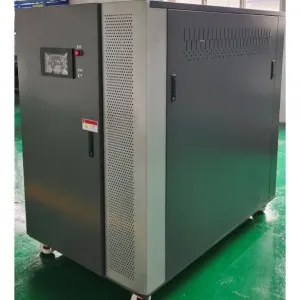Dis . 21, 2024 04:58 Back to list
Exploring the Benefits of Cast Boilers in Modern Heating Solutions
The Evolution and Importance of Cast Boiler Technology
In the realm of industrial heating, cast boilers have played a crucial role in providing efficient and reliable heat for various applications. As industries continue to evolve, the technology behind these boilers has advanced significantly, resulting in improved performance, safety, and efficiency. Understanding the importance and evolution of cast boilers can provide insights into their relevance in today's energy landscape.
What are Cast Boilers?
Cast boilers are heating systems where the heating surfaces are made from cast iron. This material is renowned for its excellent heat retention properties and durability. Cast iron has been used for centuries in various industrial applications due to its ability to withstand high temperatures and pressures. Cast boilers typically consist of multiple sections, which are assembled to form the heat exchanger. This design allows for efficient heat transfer and ensures longevity, which is crucial in industries that rely on continuous heating.
Historical Context
The use of cast iron in boiler manufacturing dates back to the 18th century when the Industrial Revolution initiated the need for more robust heating solutions. Early cast boilers were relatively simple in design, but they laid the groundwork for more advanced technologies. As energy demands grew, so did the necessity for more efficient and reliable heating solutions. Manufacturers began to innovate, creating more sophisticated designs that accommodate the increasing demands of various industries, from manufacturing to hospitality, and even residential heating.
Advancements in Cast Boiler Technology
Over the years, significant advancements have been made in the design and operation of cast boilers. Modern cast boilers feature cutting-edge technology, including improved burner designs, sophisticated controls, and enhanced insulation materials. These developments have led to
1. Increased Efficiency Modern cast boilers boast efficiencies of over 85%, significantly reducing fuel consumption and operational costs. Innovations like modulating burners and advanced control systems allow for optimal operation under varying load conditions.
2. Enhanced Safety Features Safety is paramount in industrial heating. Contemporary cast boilers are equipped with multiple safety features, including automatic shut-off valves, digital monitoring systems, and safety interlocks. These advancements reduce the risk of accidents and ensure safe operation, even in demanding environments.
cast boiler

3. Environmental Considerations With the growing emphasis on sustainability and reducing carbon footprints, modern cast boilers are designed to operate with lower emissions. Many manufacturers have integrated technologies that enable compliance with stringent environmental regulations, paving the way for greener industrial practices.
4. Longevity and Reliability Cast iron's inherent durability ensures that modern cast boilers can withstand harsh conditions while maintaining their efficiency. This long lifespan results in lower total ownership costs, making cast boilers a cost-effective choice for many applications.
Applications of Cast Boilers
The versatility of cast boilers allows them to be utilized in a wide range of settings. Some common applications include
- Manufacturing Industries such as textile, food processing, and chemical production rely on cast boilers for consistent heat in their production processes.
- Commercial Buildings Hospitals, schools, and hotels use cast boilers for space heating and hot water supply, ensuring comfort for occupants.
- Residential Heating Many homeowners still prefer cast iron boilers for their reliability and ability to provide even heating throughout the home.
The Future of Cast Boiler Technology
As we move towards a more energy-conscious world, the role of cast boilers will undoubtedly evolve. The integration of smart technologies and IoT (Internet of Things) capabilities presents an exciting frontier. Imagine a cast boiler that can communicate with other building systems to optimize its operation based on real-time data, or a system that can predict maintenance needs before they become critical issues.
In conclusion, cast boilers remain an integral part of industrial heating solutions. Their rich history, combined with modern advancements, positions them well for the future. The ongoing evolution of cast boiler technology will continue to enhance their performance and efficiency, aligning with global trends towards sustainability and energy optimization. As industries seek reliable and efficient heating solutions, cast boilers will undoubtedly play a key role in meeting these demands.
-
Premium Cast Iron Water Main Pipe for Robust Infrastructure
NewsAug.27,2025
-
A-Rated Cast Aluminum Boilers: High-Efficiency Condensing Gas & LPG
NewsAug.26,2025
-
OEM Cast Silicon Aluminum Alloy Heat Exchanger | Custom & High Performance
NewsAug.25,2025
-
Centrifugally Cast Iron Water Main Pipe | Ductile Iron Solutions
NewsAug.24,2025
-
Durable Cast Steel Concrete Pipe Mold Bottom Rings & Base Trays
NewsAug.23,2025
-
Centrifugally Cast Iron Water Main Pipe for Reliable Mains
NewsAug.22,2025


